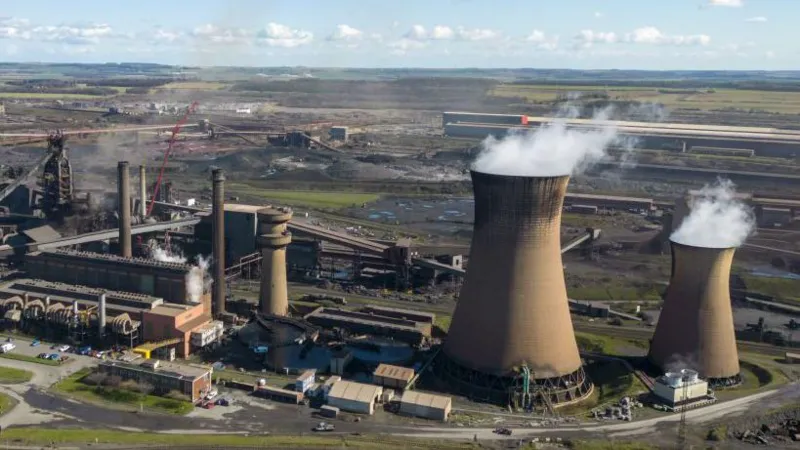As the construction and manufacturing sectors in the United Kingdom continue to grapple with persistent challenges, British Steel is facing significant material shortages that threaten to disrupt its operations. The company, a key player in the UK steel market, has reported difficulties in sourcing essential raw materials, including iron ore and scrap metal.
These shortages have been exacerbated by ongoing global supply chain issues, which have been particularly severe in the wake of the COVID-19 pandemic. As a result, British Steel’s ability to maintain production levels has been compromised, leading to concerns about meeting customer demand.
British Steel faces compromised production levels due to ongoing global supply chain issues exacerbated by the COVID-19 pandemic.
Industry experts have noted that the shortage of materials has not only impacted British Steel but has also had a ripple effect throughout the construction and manufacturing sectors. “The entire supply chain is interconnected, and when one link is weakened, it affects everyone,” stated a spokesperson for the Construction Industry Federation.
Builders and manufacturers relying on steel for their projects are now facing delays and increased costs, which could ultimately lead to project cancellations or postponements.
Moreover, the issue of rising prices for raw materials is also becoming increasingly pressing. With the demand for steel rising, suppliers have begun to increase prices, putting additional financial strain on companies like British Steel.
The company is now forced to navigate this challenging landscape while attempting to keep its operations viable. “We are doing everything we can to alleviate these shortages, but the situation is fluid and evolving,” remarked the chief executive of British Steel. His comments reflect the urgency of addressing these challenges as the company seeks to guarantee its future stability.
Looking ahead, British Steel is exploring various strategies to alleviate its material shortage issues. This includes seeking alternative suppliers and investing in recycling initiatives to reduce dependency on virgin materials.
However, these solutions may take time to implement, and the company remains cautious about the immediate future. Analysts predict that unless the underlying supply chain issues are resolved, British Steel may continue to face difficulties in sustaining production levels.














